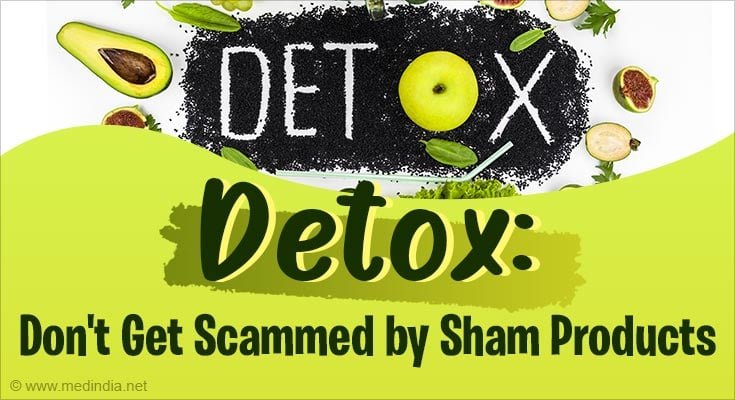Flush Out the Toxins, Not Your Wallet

- Detox products often lack scientific evidence for efficacy
- The human body is equipped with efficient detoxification systems
- Prioritize lifestyle habits like hydration, balanced diet, and stress management for holistic wellness
In the health and wellness landscape, the attraction of detoxification is undeniable. With promises of cleansing the body and eliminating toxins, detox products have flooded the market, ranging from teas and supplements to elaborate juice fasts and colon cleanses. But amidst the flashy marketing and bold claims, a crucial question looms large: Is detox a scam?
Many individuals have found themselves drawn into the detox fad at some point, seeking a rapid resolution to their health concerns. Feeling sluggish and bloated, they too may embark on week-long juice cleanses, enduring hunger pangs and discomfort in pursuit of that elusive “clean” sensation. However, as one goes deeper into the subject, questions may arise regarding the true effectiveness of these detox regimens versus the possibility of experiencing a placebo effect (1✔ ✔Trusted Source
“Detoxes” and “Cleanses”: What You Need To Know
).
Debunking Detox Myths: Science vs. Marketing
According to Krish Ashok, author of ‘Masala Lab’, the word ‘detox’ should raise a red flag. He warns against falling for the marketing gimmicks that promise to cure a myriad of health issues with detox treatments. The truth, as Ashok asserts, is that these products simply don’t deliver on their extravagant claims.
Historically, detoxification referred to medical procedures aimed at removing harmful substances like drugs or poisons from the body. However, in today’s wellness landscape, the term has taken on a different meaning altogether. Modern detox programs target supposed toxins that purportedly cause common health complaints like headaches, bloating, and fatigue. These self-directed programs often involve special diets or supplements readily available in stores, promising to cleanse the body of impurities.
But do these detox programs actually work? Dr. Sangeeta Tiwari, a clinical nutritionist, remains skeptical. Despite the claims made by detox product brands, there is a lack of scientific evidence supporting their efficacy. The human body, equipped with powerful detoxification mechanisms primarily involving the liver,
Malvika Fulwani, a clinical dietitian, echoes this sentiment, cautioning against the pseudoscientific concepts and vague language often used to promote detox products. While some may induce temporary weight loss or the illusion of cleansing through diuretic or laxative effects, they do not enhance the body’s natural detoxification processes in the long run.
Even research from institutions like McGill University debunks the myth that our bodies harbor significant amounts of waste requiring aggressive cleansing. Using external products for colon cleansing, as the report states, is largely pointless and may even lead to adverse effects.
Embracing Natural Wellness: Key Strategies for Holistic Health
So, if detox products aren’t the answer, what is the best way to support the body’s natural detoxification processes? The solution lies in adopting a healthy lifestyle. Experts recommend staying hydrated, consuming a balanced diet rich in nutrient-dense foods, including natural detoxifying foods like cruciferous vegetables and berries, limiting processed foods and sugar, prioritizing adequate rest, managing stress through practices like yoga and meditation, and engaging in regular physical activity.
Ultimately, the detox dilemma highlights the importance of critical thinking in navigating the vast landscape of wellness trends. Rather than seeking quick fixes or succumbing to marketing hype, focusing on sustainable lifestyle habits is key to promoting overall health and well-being. So, the next time you’re tempted by the allure of detox products, remember to approach with caution and prioritize evidence-based practices for optimal health.
Advertisement
“Rather than seeking quick fixes or succumbing to marketing hype, focusing on sustainable lifestyle habits is key to promoting overall health and well-being.”
Reference:
- “Detoxes” and “Cleanses”: What You Need To Know – (https://www.nccih.nih.gov/health/detoxes-and-cleanses-what-you-need-to-know)
Source-Medindia
Source link
#Flush #Toxins #Wallet



